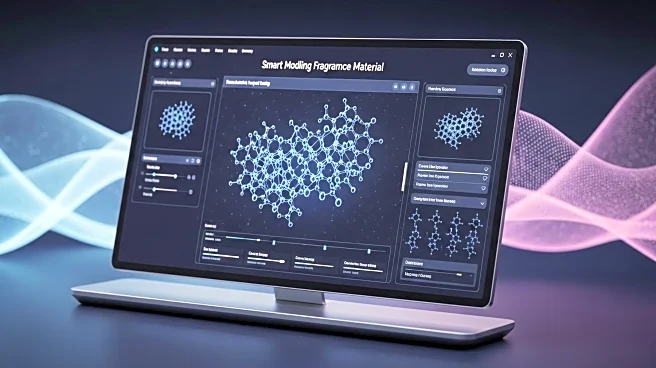What's Happening?
The Research Institute for Fragrance Materials (RIFM) has conducted a pilot study utilizing physiologically based pharmacokinetic (PB/PK) modeling to enhance the safety assessment of fragrance ingredients without resorting to animal testing. This approach allows researchers to simulate how substances are absorbed, distributed, metabolized, and excreted in the body, providing a scientific basis for evaluating tissue exposure. The study focused on 11 fragrance ingredients, confirming that they reached target tissues at levels sufficient to support previous safety conclusions. This method addresses regulatory demands for proof that ingredients reach relevant tissues in toxicological studies, filling data gaps in older studies without new animal tests.
Why It's Important?
This development is significant as it aligns with the cosmetics and personal care industry's shift towards non-animal testing methods, responding to ethical concerns and regulatory requirements. By employing PB/PK modeling, RIFM provides a scientifically robust alternative that satisfies regulatory needs while avoiding animal testing. This advancement benefits the industry by ensuring that fragrance ingredients meet modern safety standards, thereby maintaining consumer confidence and compliance with evolving regulations. It also supports the industry's commitment to ethical practices, potentially influencing broader adoption of similar methodologies across other sectors.
What's Next?
Following the success of this pilot study, RIFM plans to expand the application of PB/PK modeling to a wider range of fragrance ingredients and potentially other areas of safety testing. This approach promises to streamline regulatory compliance processes, reduce reliance on animal testing, and enhance the safety evaluation of ingredients. As the industry continues to prioritize ethical and scientific advancements, stakeholders may increasingly adopt such innovative methods, potentially setting new standards for safety assessments in the cosmetics and personal care sectors.
Beyond the Headlines
The adoption of PB/PK modeling in fragrance safety assessments reflects a broader trend towards integrating advanced scientific techniques in regulatory compliance. This shift not only addresses ethical concerns but also enhances the precision and reliability of safety evaluations. As the industry embraces these changes, it may lead to a reevaluation of traditional testing methods, fostering innovation and potentially influencing regulatory frameworks globally. The move towards non-animal testing could also inspire similar advancements in other industries, promoting a more sustainable and ethical approach to product safety.









